LED displays are very popular among the public due to their excellent visual effects, low power consumption, high brightness, easy splicing and assembly, and many other advantages. With the continuous development of manufacturing technology and LED display technology, various types of creative LED displays continue to emerge and greatly expand the application scope of LED displays. Curved LED display is one of them. What is a curved LED display? What are the different types of curved LED displays? Now let’s take a look at all aspects of curved LED displays.
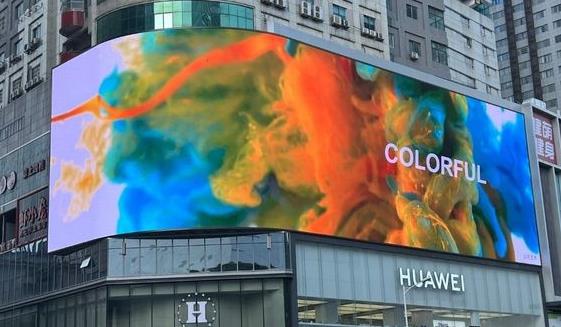
Curved LED displays, as the name implies, refer to those LED displays with curved surfaces. There are generally two types of curved LED screens. One is made of conventional LED modules pre-designed to a certain arc; the other is made of flexible LED modules, and is fixed with plastic and aluminum brackets to ensure the flatness and stability of the curved surface.
Flexible LED modules can be bent into almost any curvature, so when assembling curved LED screens with flexible LED modules, more convenient and flexible applications can be achieved.
Curved LED displays are usually applied onto the curved surfaces of buildings to maximize space utilization and create unique visual effects. In different application scenarios, we see various types of curved LED screens, such as convex LED displays, concave LED displays, circular LED displays, etc.
Convex LED display refers to an LED screen with an arc-shaped convex surface, which is one of the most commonly seen types of curved LED displays. Convex LED display is mainly used on the facades of buildings with curve outlines. It can not only fit well with the wall, but also enhance the overall visual effect of the building, better attract passers-by to stop and watch, thereby increasing the flow of people.

Convex LED Display
In contrast to a convex LED display, a concave LED display has a curved surface in concave style. Usually a concave LED display appears on the concave wall inside a building. A concave LED display can optimize the utilization of a limited inner space, so it is very popular among users.
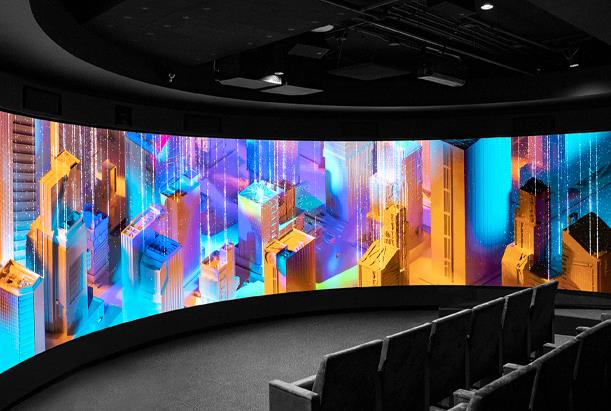
concave LED display
A wave LED display refers to a type of wave-like LED display, which is composed by several consecutive convex and concave LED surfaces. Obviously, Wave LED displays are mainly used to fit onto the surface of buildings with continuous convex and concave shapes.
Sometimes, we utilize a wave LED display only to achieve special designed visual effects rather than to fit on a wave style surface.
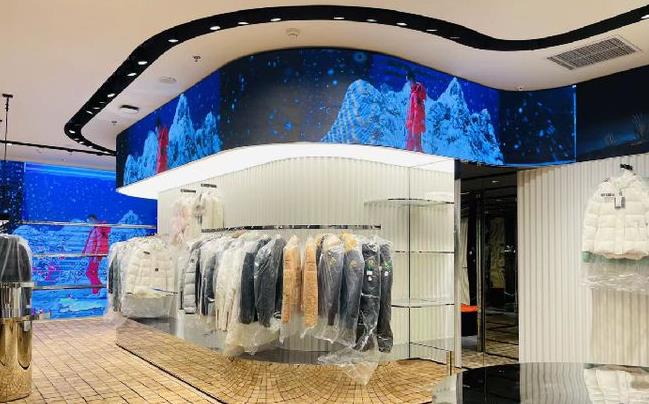
wave LED display
Circular LED display can be said to be the perfect application type of the curved LED screen. Generally speaking, the circular LED screen is mainly fixed on the surface of the cylindrical structure of the building or used to build a decorative circular ceiling in a larger indoor space. The biggest advantage of the circular LED screen is that it can achieve 360° visual content presentation without blind spots.
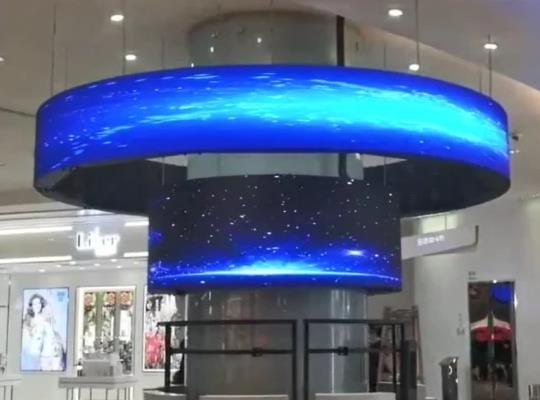
circular LED display
Of course, the above two types of circular LED displays are both with the display surface facing outwards; in fact, there are also circular LED displays with the screen facing inwards, such as the space-time tunnel we saw at the ISLE 2024, which is an inner circular LED display.
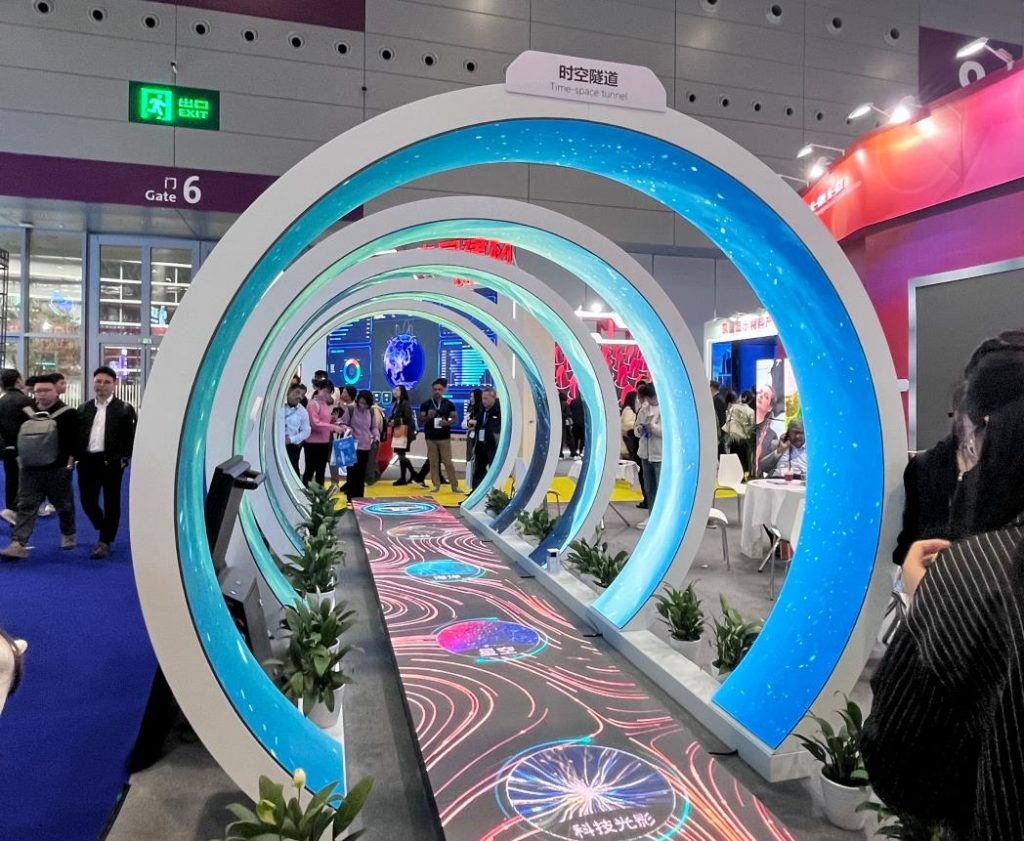
Time Space Tunnel at ISLE 2024 is a combo of ring style circular LED displays with inward surfaces.
Obviously, a circular LED display with outward surface is designed for open visual effects, while a circular LED display with inward surface focuses on closed visual experience.
Sphere LED display can be said to be the ultimate application of the curved LED screen. Obviously, compared with the circular LED screen, the spherical LED screen is more complex in design and more expensive. Of course, the visual effect of the spherical LED screen is also second to none.
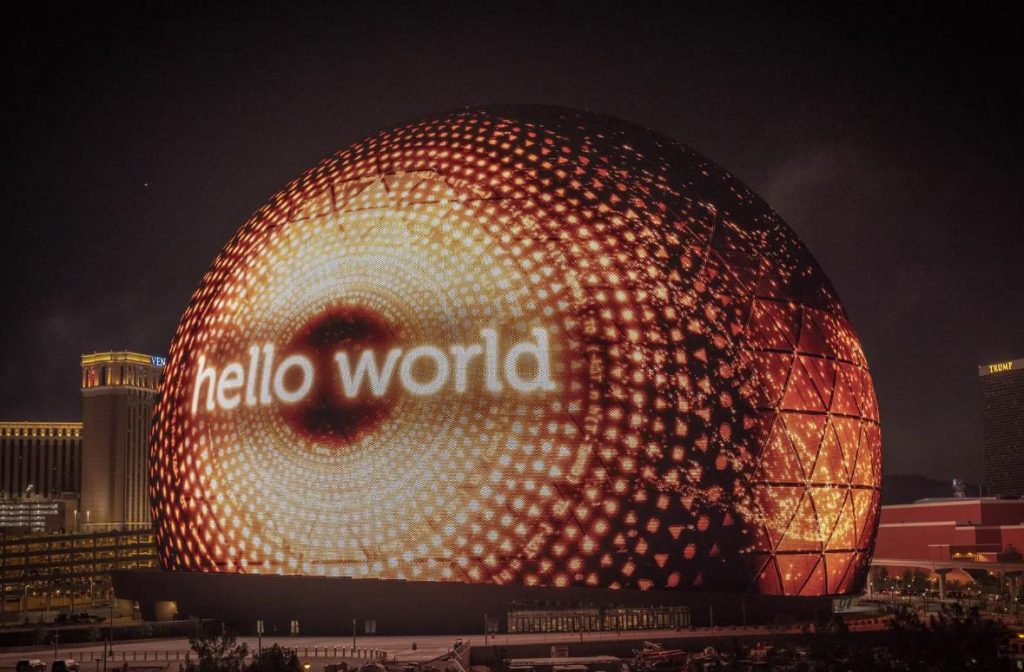
Exosphere by MSG in Las Vegas is the largest spherical LED display in the world.
In addition, the image content suitable for spherical LED screens often requires a professional team to design. For example, the Exosphere spherical LED screen on the facade of the world-famous Sphere in Las Vegas has a professional team to design dedicated content for it, thus ensuring the optimization of its visual effects.
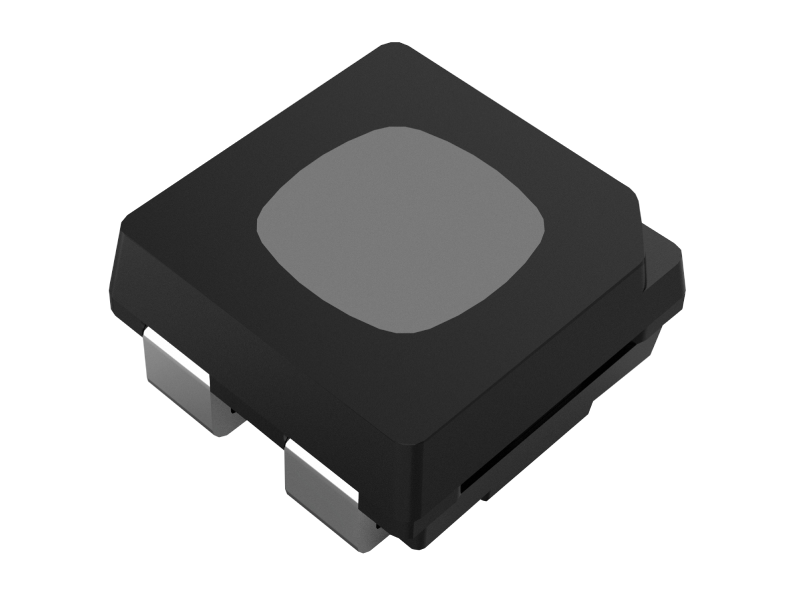
Kinglight provides various LEDs for screen manufacturing
With the application of flexible materials in LED module design, the curved LED screen composed of flexible LED modules can achieve almost any curvature effect, thereby creating various creative curved LED screens through continuous and irregular curved surface modeling, bringing extremely creative visual effects to the public.
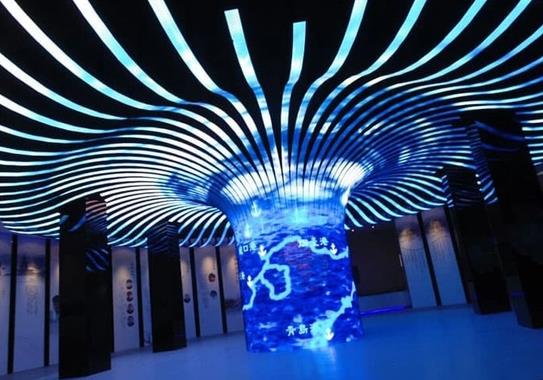
creative curved LED display